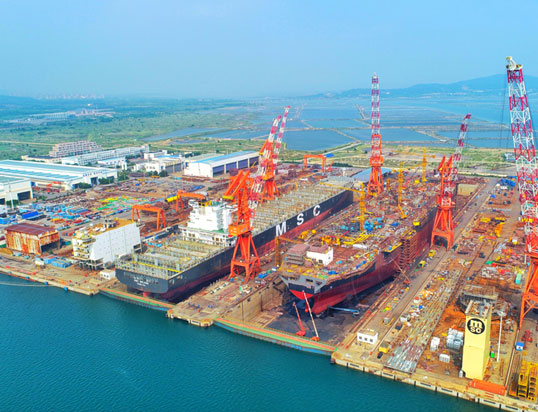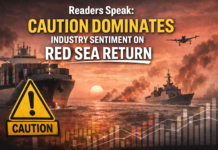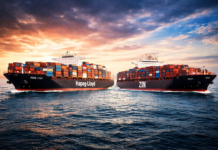
Charging fees on China-linked vessels calling at US ports will significantly increase the cost of seaborne transport to and from the United States – even if operators are pursuing avoidance strategies, said BIMCO in its letter to the US Trade Representative.
BIMCO expects operators to attempt to mitigate the negative impact of port fees either by passing the costs on to US importers—resulting in higher prices for consumers—or by ceasing trade with US ports.
The port fees are significant, with BIMCO providing an example: “A fee of US$1,000 per net ton on a 300,000 DWT supertanker would exceed US$100 million per port call.”
The international shipping association explains in its letter: “If the proposed fee structure is implemented as drafted, seaborne trade to and from the United States of America will become less efficient and less economically viable. It is likely that some operators would shy away from having Chinese tonnage in their fleets and dedicate their maritime operations towards the US market. Other operators might do the opposite, increasing their share of Chinese tonnage and dedicating their maritime operations to non-US trade.”
According to BIMCO, the totality of the world fleet would not change, but the overall cost of maritime trade would increase due to less competition in the now segregated US market.
BIMCO noted: “US import/export is about 12% of global seaborne trade, so the consequences of re-organising maritime trade will have a much bigger impact on US import/export than on trade in the rest of the world.”
BIMCO added that Chinese-built ships already in operation will remain part of the global fleet even if the proposed port fees are introduced. If these ships were removed, it would create a global tonnage shortage, disrupting transportation and driving shipping costs to extreme levels.
According to BIMCO’s letter, the container shipping sector, dominated by a few large operators, is less likely to experience market segmentation and may instead focus on minimizing the number of US port calls per ship. This will “inevitably lead to port congestion, trade flow choking and increased inland re-distribution need,” according to BIMCO, which also believes that fewer port calls will negatively impact port jobs, potentially making some ports less attractive for foreign trade.
“In summary, the proposed actions will impose much increased transport costs on US imports and exports and have negative effects on the wider US economy; their impact on Chinese dominance is much less certain,” concluded BIMCO.





